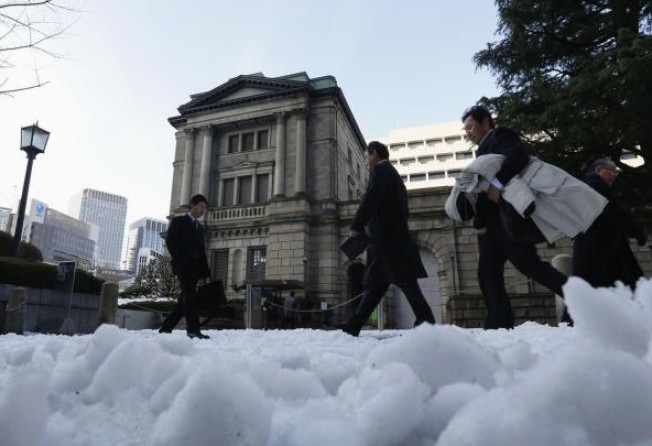Japan faces wage hurdle in bid to end deflation
Falling prices bring consumers joy but the government wants inflation of 2 per cent

A decade and a half after Japan slumped into deflation, the central bank is set to signal its strongest effort yet to reverse the trend. The biggest challenge may be that the nation has come to rely on falling prices.
More than 80 per cent of respondents in a Bank of Japan survey released this month who noticed rising prices last year said it was bad. More than a third of those who said prices fell were happy about it.
Even so, the bank next week will adopt the government's desired 2 per cent inflation target, according to 20 of 22 economists surveyed.
Ending consumer price declines would give companies and households more incentive to borrow, and boost revenue for businesses and the government in a nation that saw its third recession in five years last year.
The danger: prolonged deflation has altered behaviour across the economy, from entrenching declines in pay to driving more than half of savings into cash.
"The key is wages," said Nobuyasu Atago, a principal economist at the Japan Centre for Economic Research and a former central bank official in charge of price data. "Without pay increases, the economy won't recover and households will only suffer from inflation."
Japan's main business lobby signalled it would not endorse pay rises at regular wage talks with labour unions this spring, Kyodo News reported last month.
Prime Minister Shinzo Abe is considering tax breaks for companies that raise pay or expand hiring.
Abe's administration anticipated the central bank would adopt a 2 per cent target for inflation at its two-day meeting starting tomorrow, Vice-Finance Minister Shunichi Yamaguchi said.
People familiar with officials' discussions said this month the central bank would not set a deadline for hitting the target. Last year, the bank set 1 per cent as its inflation goal for the time being.
Masaaki Kanno, the chief economist at JP Morgan Securities Japan, said the central bank would adopt open-ended purchases of assets such as government bonds at a rate of four trillion yen (HK$347.7 billion) per month. Nomura Securities sees 2.5 trillion yen.
Abe's pressure for more monetary easing has helped to push the yen down about 10 per cent against the US dollar in the past two months. The yen slid through 90 per dollar yesterday for the first time since June 2010, and was at 89.86 yesterday afternoon.